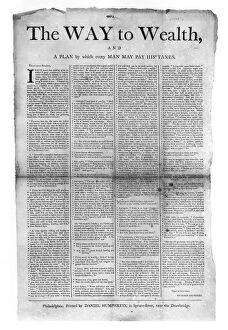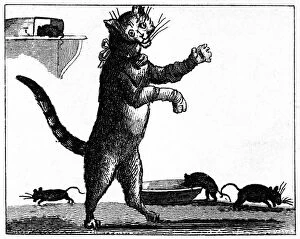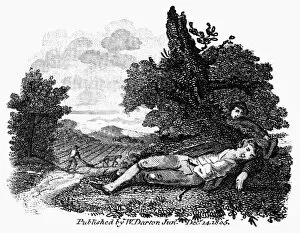Way To Wealth Collection
"Benjamin Franklin's Way to Wealth: Timeless Wisdom for Financial Success" Discover the secrets of wealth and prosperity with Benjamin Franklin's renowned book
All Professionally Made to Order for Quick Shipping
"Benjamin Franklin's Way to Wealth: Timeless Wisdom for Financial Success" Discover the secrets of wealth and prosperity with Benjamin Franklin's renowned book, "The Way to Wealth. " First published in 1758, this timeless masterpiece offers invaluable advice on achieving financial success. The frontispiece and title page of an 1807 British edition beautifully capture the essence of Franklin's teachings. The intricate illustrations depict scenes that reflect his famous sayings, such as "He that by the plow would thrive, Himself must either hold or drive, " emphasizing the importance of taking control of one's destiny. Another engraving showcases the saying, "What maintains one vice would bring up two children, " reminding us that indulging in unnecessary expenses can hinder our path to wealth. Similarly, a captivating illustration warns against trusting others too much: "Trusting too much to others' care is the ruin of many. " Franklin's wisdom extends beyond finances; he also emphasizes productivity and seizing opportunities. As depicted in another engraving from the same edition, he advises us never to procrastinate: "Never leave till tomorrow what you can do today. " This powerful message encourages action and efficiency. Intriguingly, an illustration featuring a cat wearing gloves conveys Franklin's belief that pride hinders progress: "The cat in gloves catches no mice. " He reminds us not to let arrogance prevent us from pursuing opportunities for growth. Furthermore, Franklin condemns laziness through an allegorical depiction in an early 19th-century edition. It serves as a stark reminder that wasted time cannot be regained—a call-to-action against idleness. Lastly, we are reminded of the importance of wise decision-making when it comes to managing resources. An engraving illustrates his saying: "Fools make feasts and wise men eat them, " urging prudence and moderation.








